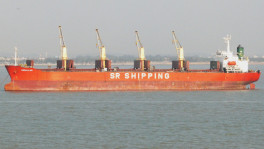Why energy poverty needs to be understood from a gender perspective
Poor energy base, including excessive fossil fuel use, has had a negative impact on the environment, and women are caught in this vicious cycle

Fighting against Covid-19, we almost forgot to focus on the already prevailing dire problems i.e. environmental degradation, inequality, poverty, energy poverty, and gender issues.
Be it a pandemic or a natural calamity, it has a gender face. This write-up is not on the present pandemic scenario, but on the existing state of gender perspective of energy poverty - 'feminisation of energy poverty'. This appears to be an overlooked risk factor when discussing environmental rejuvenation.
The million-dollar question is why it is so critical in the environmental sustainability dialogue to examine the prevalence of energy poverty from a gender perspective. Answering this question entails an investigation on the feminisation of energy poverty in the public policy arena for mainstreaming gender perspective with facts and evidence.
Firstly, what is energy poverty? Simply put, energy poverty is 'the absence of sufficient choice in accessing adequate, affordable, reliable, high-quality, safe, and environmentally benign energy services to support economic and human development'. According to the WHO, energy poverty currently causes more deaths than malaria or tuberculosis, making it a global emergency issue.
Secondly, what are the reasons to believe that energy poverty has a female face? Finding an answer to this question is like walking along memory lane. The link between women and poverty in socioeconomic and gender studies dates back to the 1970s, but it was on the rise during the 1990s in the face of global poverty among women. It has remained a point of debate since then, but it now has a place in the Sustainable Development Goals.
There are some vital aspects relating to energy poverty that fall on the shoulders of women. Primarily, in a country like Bangladesh, water and sanitation-related issues are among them. Houses lacking safe drinking water have an impact on women in particular as generally they have to fetch water for the family, which has broader impacts on their health, educational performance, and opportunity costs.
Moreover, due to the lack of access to modern energy sources many households use solid fuels for their basic needs. This results in high levels of indoor air pollution, causing respiratory problems. Annually, indoor pollution causes 1.3 million deaths in low-income countries due to the use of biomass in poor cookstoves (WHO).
According to the IEA, universal access to energy by 2030 will cost $35 billion per year, which is significantly less than the annual amount provided for fossil fuel subsidies.
We must recognise that improving women's conditions is critical to achieving the global goals of ensuring equal opportunity for women, alleviating poverty, and gaining access to energy—all of which will play a critical role in the protection and restoration of the environment in the long run.
Women are disproportionately affected by energy poverty and its ramifications in all spheres due to the gender roles bestowed upon them at home, in terms of caregiving and other unpaid labour.
Studies have found that women dedicate more hours to the household and family compared to men. The gender distribution of household responsibilities puts a greater burden upon their shoulders. Sufficient access to energy is, indeed, a contributing dynamic to reduce social inequality.
Having said that, it is evident that poor women are one of the most vulnerable sections of the population due to their household responsibilities. Though a threshold level of energy poverty is yet to be determined, the gender division of labour, the prevailing traditional forms and characterisation of energy complications are generally indicative of a dire energy scenario among urban and rural poor women of the country.
For example, the existing social reproduction and caregiving forms in Bangladesh leave women to do the tasks of feeding, nurturing, washing, and caregiving of dependent ones. Generally speaking, these issues are related to heating and cooking that require adequate energy. Women have to shoulder the burden of finding the necessary ways and means to manage the required energy in order to satisfy their household needs. It is the irony of fate that they lack both.
Though the energy poverty scenario of poor women in Bangladesh needs greater investigation, from my observation, I can say one thing that the scenario is not a pleasant one.

Traditionally, we see in rural areas of Bangladesh poor women are accumulating cow dung and dry leaves of trees for cooking purposes. This shows their hardship due to lack of access to affordable, reliable, and safe energy, which is also associated with their income poverty. Meanwhile, studies say that the households of Bangladesh are more energy poor than income poor. In this regard, more studies are needed for proper reasoning. A gender perspective might shed some light.
Nevertheless, women are one of the main elements of change and development, and in the growth process of Bangladesh, their contribution is noteworthy. Progress in energy access and quality for women will ensure improvement for every person in society and contribute to the greater social change as a whole.
Poor energy base, including excessive fossil fuel use, has had a negative impact on the environment, and women are caught in this vicious cycle and are disproportionately affected by climate change-related calamities. As a result, addressing this issue on a policy level will provide a boost to our current growth scenario.
Finally, the connection between these two phenomena, feminisation and energy poverty, needs to be addressed comprehensively in both the scientific and policy-making domains. A policy to ensure safe and affordable energy for women is urgently needed.
Despite some progress, there is a scarcity of data from a gender perspective. We must recognise that improving women's conditions is critical to achieving the global goals of ensuring equal opportunity for women, alleviating poverty, and gaining access to energy—all of which will play a critical role in the protection and restoration of the environment in the long run.
Mowshumi Sharmin is an Assistant Director (Research) at Bangladesh Institute of Governance and Management (BIGM). She can be reached at [email protected].
Disclaimer: The views and opinions expressed in this article are those of the authors and do not necessarily reflect the opinions and views of The Business Standard.


 Keep updated, follow The Business Standard's Google news channel
Keep updated, follow The Business Standard's Google news channel
















